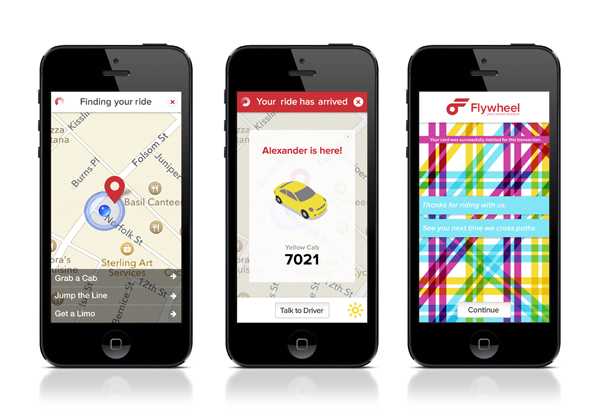This Mobile App Could be an Uber and Lyft Killer

In the world of shared transportation services and the mobile apps that front them, the battle between companies such as Uber, Lyft and the traditional taxicab services that precede them has been heating up in terms of market share, animosity and scandal.
The most controversial belligerent in this capitalistic battle over market share of the lucrative personal transportation sector is Uber, a company that has recently received some very negative press from two fronts: tech journalists and traditional taxicab companies. Just in time for the busy holiday travel season, Uber is in the midst of a public relations debacle that other companies such as Flywheel are finding impossible to resist.
Flywheel is a mobile app that uses GPS and mapping technology similar to that of Uber, Lyft and others. Flywheel, however, is different in the sense that it works together with existing taxicab companies instead of providing its own vehicle fleet. Flywheel has been around since 2009, but in the beginning it only provided management services for cab services. Last year, Flywheel switched its functionality to allow people in need of a ride to hail cabs using their smartphones.
Flywheel’s current area of operations is limited to San Francisco, a city often selected by tech startups to test their business models. This company is taking a very different approach in comparison to Uber, which seems poised to drive existing taxicab companies out of business by pointing out their flaws and essentially bashing them. Flywheel, on the other hand, seeks to protect taxi drivers who operate the iconic cabs that have been serving American communities for decades.
The amount of venture capital that Flywheel has raised is tiny in comparison to Uber and other competitors, but this seems to be a company that intends to operate and promote itself in good faith, and it has room to grow without having to worry about maintenance of vehicle fleets.
